The first success tip for any new vet is: don’t feel you have to accept the first role you’re offered. It’s okay to hold out for a location that works for you and a practice that doesn’t have a worryingly high turnover of new grads (or a worrying lack of them).
Once you’ve found that first role, here are some tips to help you make the most of it.
Ask for help
Yes, your colleagues are busy. But they’d much rather answer your questions than fix your mistakes – or worse, have you make the kind of mistake that can’t be fixed. Keep a pocket notebook for info like drug dosages and a formulary app on your phone so you don’t have to ask basic questions more than once.
Don’t expect yourself to handle routine surgery on your own in the first few weeks, or even the first few months. Again, your colleagues would much rather scrub in or be on hand to answer questions than put a patient’s safety at risk.
Don’t expect yourself to be on call by yourself right away either. Instead of doing, say, a one-in-seven by yourself, try doing a one-in-four with a more experienced vet on call with you. This isn’t selfish – it’s essential.
Use your PDP
Your Professional Development Plan (PDP) is a useful learning tool at the start of your career. If your job is short on opportunities or otherwise sub-ideal for a new graduate, you can use your PDP to talk to your boss about gaps in your experience that you want to fill and milestones that you want to achieve.
Ask for a raise
Check the Society of Practising Veterinary Surgeons website to find out the going rate for a new vet in your area. By the end of your first year, if you’re not offered a raise, you shouldn’t be afraid to ask for one. You’ll have learned a lot and will be bringing significantly more value to the practice, and your pay should reflect that. NSV have also created an up-to-date salary review of veterinary professionals in the UK, check it out here.
Get it in writing.
According to the BVA, one in four recent graduates do not have a written contract of employment. No contract means no legal protection or signed commitment from your employer, so you’re vulnerable to “abuse” – for instance, you could be made to work excessive on-call hours because there’s no signed agreement limiting them. An employer who doesn’t provide you with a contract right away may be sketchy.
Before you sign a contract, make sure you read it thoroughly and address any concerns with your boss. Once you’ve signed, you’ve legally agreed to whatever’s in it, so don’t let them pressure you to sign if you’re not happy with it.
Talk to friends
Form a support network with other recent graduates from your course, or find a local group of recent grads through the BVA Young Vet Network. Talk to each other regularly to ask those “silly” questions, swap advice and stories, vent, and support each other during bad times.
When you’re a new graduate surrounded by experienced vets, it’s easy to feel like the only clown in the world who doesn’t know what they’re doing. Talking to others who are going through the same thing will reassure you that you’re not alone.
Partner with us to ensure we find you a dependable practice and a great contract deal.









[…] you actually are the most junior, show your willingness to learn. Take the initiative to pick up skills from those around […]